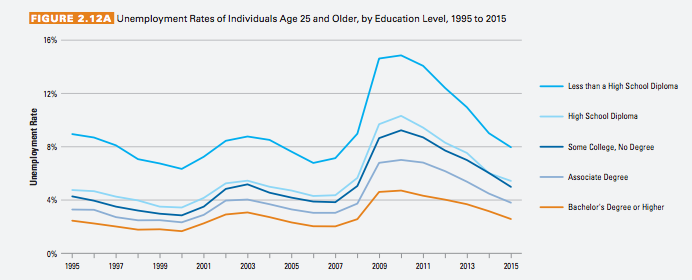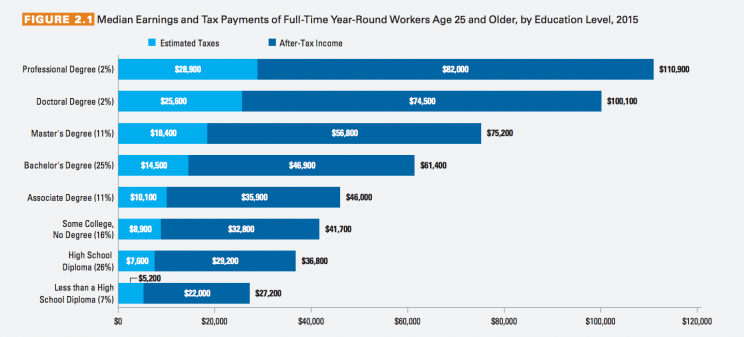Why you won't truly appreciate college until your mid-30s

As the price of attending college continues to skyrocket, you might be wondering if it’s worth the financial investment. A recent report by The College Board found that it will be — after about 12 years.
The report compared the median income of a high school graduate and that of a bachelor’s degree recipient. It found the increased earnings from going to college were enough to recoup the costs by the age of 34.
The calculation takes into account the cost of tuition, fees and books, as well as the opportunity cost of being out of the labor force for four years.

The report also assumes students graduate in four years, paid an annual interest rate of 4.29 percent on their loans and paid them off in 10 years.
The longer college graduates remain in the workforce, the greater the benefit becomes. If they work until the age of 64, they will earn on average approximately $400,000 more than a high school graduate.
Students who earn an associate’s degree, and even those who attend college for at least a year and leave without a degree, receive some financial benefits from their experiences relative to those who do not attend college. Their median total earnings exceed those of high school graduates at age 30 and 35 respectively.
Those with a college degree are also approximately half as likely to be unemployed as high school graduates. In 2015 just 2.5 percent of individuals over the age of 25 with a bachelor’s degree were unemployed, compared to 5.0 percent for those with a high school diploma and 8.0 percent for those without a diploma.

These comparisons do not include bachelor’s degree recipients who went on to earn advanced degrees. The report notes that those who earned postgraduate degrees had significantly increased median earnings.

The College Board is a not-for-profit organization that aims to expand access to higher education.

 Yahoo Finance
Yahoo Finance 